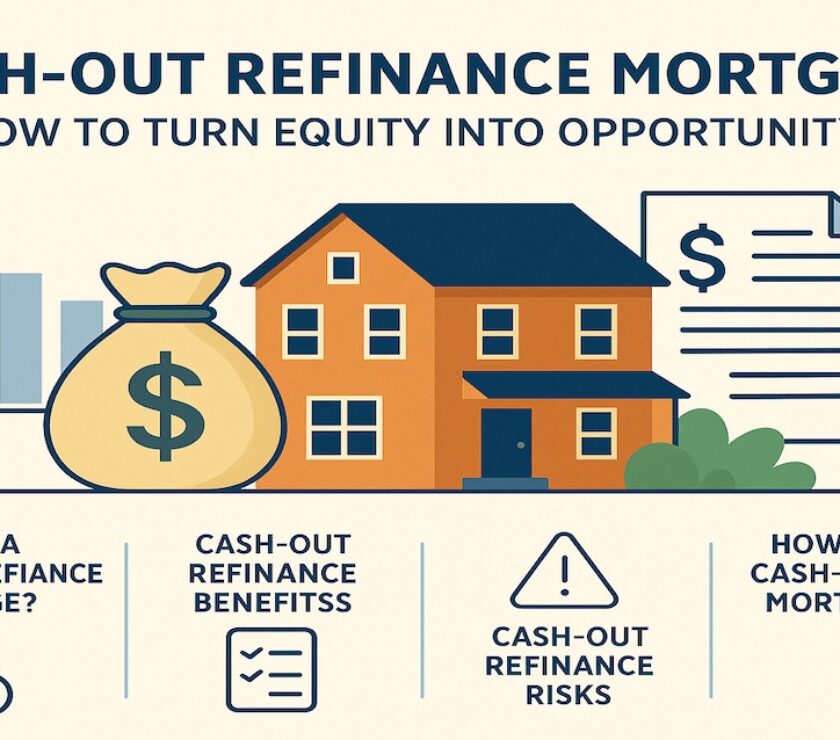Buying your first home is a thrilling experience, but let’s be real—it can also be a little nerve-wracking. From understanding the market to navigating the financial maze, the journey is packed with challenges. If you’re ready to join the ranks of first-time homebuyers, these proven strategies will transform your homeownership dreams from overwhelming to achievable, guiding you smoothly through every step of your journey.
Understanding the Home Buying Process
Researching the Real Estate Market
Before diving into homeownership, take time to study the real estate market in your desired area. Start by exploring property prices, trends, and demand. Use websites like Zillow or Realtor.com to identify areas where homes align with your budget. Attend open houses to get a feel for the types of properties available. Market research not only helps you make informed decisions but also equips you with knowledge to avoid overpaying.
Determining Your Budget
Knowing how much you can afford is crucial. Review your monthly income, expenses, and long-term financial goals. Use online mortgage calculators to estimate monthly payments, and remember to factor in costs like taxes, insurance, and maintenance. Setting a clear budget keeps you grounded and prevents overspending.
Knowing the Key Players in the Process
Home buying involves a team effort. You’ll interact with real estate agents, mortgage lenders, appraisers, and home inspectors. Understanding their roles and responsibilities will make the process smoother. For instance, your real estate agent will guide you through listings, while your lender handles financing.
Financial Preparation for First-Time Buyers
Building a Strong Credit Score
A solid credit score is your golden ticket to favorable mortgage terms. Pay off outstanding debts, avoid opening new credit accounts, and ensure timely bill payments. Regularly check your credit report for errors—correcting them can boost your score.
Saving for a Down Payment
While some loans allow for as little as 3% down, aiming for 20% can save you from paying private mortgage insurance (PMI). Start saving early by setting aside a fixed portion of your income each month. Consider automating your savings to stay consistent.
Factoring in Hidden Costs
Buying a home involves more than just the down payment and mortgage. There are property taxes, homeowners’ insurance, closing costs, and maintenance fees. Create a comprehensive list of these expenses to avoid surprises.
Getting Pre-Approved for a Mortgage
A pre-approval letter shows sellers that you’re a serious buyer. It also gives you a clear picture of what you can afford. Shop around for lenders to find the best rates and terms before committing.
Choosing the Right Location
Evaluating Neighborhoods
Your home’s location is just as important as the property itself. Research crime rates, school districts, and nearby amenities. Take note of community vibes by visiting at different times of the day.
Prioritizing Proximity to Work and Amenities
Long commutes can take a toll on your quality of life. Look for areas that balance affordability with accessibility to work, grocery stores, and healthcare facilities.
Considering Future Resale Value
Even if you plan to stay long-term, resale value matters. Homes in up-and-coming neighborhoods or near major infrastructure projects often appreciate faster.
Selecting the Right Property
Making a List of Must-Have Features
Separate your needs from your wants. Essential features might include the number of bedrooms or a backyard, while bonus features could be a pool or smart home technology. This list keeps you focused during your search.
Inspecting the Property Thoroughly
Never skip the home inspection! A professional inspector can identify structural issues, plumbing problems, or outdated electrical systems. Knowing these details upfront can save you costly repairs later.
Comparing New vs. Old Homes
New homes often require less maintenance but may lack character. Older homes can be charming but might come with hidden costs. Weigh the pros and cons based on your lifestyle and budget.
Making a Competitive Offer
Researching Comparable Sales
Check recent sales of similar homes in the area to determine a fair offer. This data is your leverage when negotiating with the seller.
Understanding Offer Contingencies
Contingencies protect you from unforeseen issues. Common ones include financing contingencies, home inspections, and appraisals. Work with your agent to include appropriate contingencies in your offer.
Negotiating with Confidence
Don’t be afraid to negotiate! Sellers often expect some back-and-forth. Use your research and pre-approval to present a strong yet fair offer.
Navigating the Closing Process
Reviewing the Home Inspection Report
Once the inspection is complete, review the report carefully. Request repairs or negotiate a price reduction for significant issues.
Finalizing the Mortgage Loan
Stay in close communication with your lender during this phase. Provide all required documentation promptly to avoid delays.
Preparing for the Closing Day
Closing day involves signing a mountain of paperwork, so be prepared! Double-check the final terms of the deal and ensure you understand everything before signing.
Preparing for Life as a Homeowner
Creating a Maintenance Plan
Owning a home means staying on top of maintenance. Create a schedule for tasks like HVAC servicing, gutter cleaning, and landscaping. Routine care prevents larger, costlier problems down the line.
Building an Emergency Fund
Unexpected repairs, like a leaky roof or a broken water heater, are part of homeownership. Set aside a portion of your income as a safety net for such situations.
Familiarizing Yourself with Local Laws
Some areas have regulations on property modifications, noise levels, or landscaping. Knowing these rules upfront helps you avoid potential fines or disputes.
Finally
Buying your first home is a mix of excitement and responsibility. By understanding the process, preparing financially, and staying informed, you can confidently navigate this life-changing milestone. Remember, it’s not just about buying a house—it’s about creating a home.
FAQs
- How much should I save for a down payment?
Aim for at least 20% to avoid private mortgage insurance, though some loans allow for as little as 3%. - What is a good credit score for buying a house?
A score above 700 is ideal for securing competitive mortgage rates, but some lenders approve scores as low as 620. - How long does it take to buy a house?
The process usually takes 30–60 days after your offer is accepted, but market conditions can impact timelines. - Do I need a real estate agent?
While not mandatory, an agent simplifies the process by finding listings, negotiating, and handling paperwork. - What’s the biggest mistake first-time buyers make?
Overextending their budget is common. Stick to what you can comfortably afford, even if it means compromising on some features.
Additional Resources:
Is It A Good Time To Buy A House?
Getting A Downpayment For A House
First-Time Homebuyer Guide 2025 | Steps, Loans & Programs
How Smart Home Tech & Sustainability Features Are Reshaping Home Value
Please don’t forget to like, comment and share.
Explore more by joining me on BuyMeACoffee /PersonalOne
The information provided in this article is for general informational purposes only and should not be considered financial, legal, or professional advice. Always consult with a qualified professional before making decisions regarding home maintenance, repairs, or any other financial commitments. The author and publisher are not responsible for any financial losses or damages resulting from the use or reliance on the information provided in this article.




